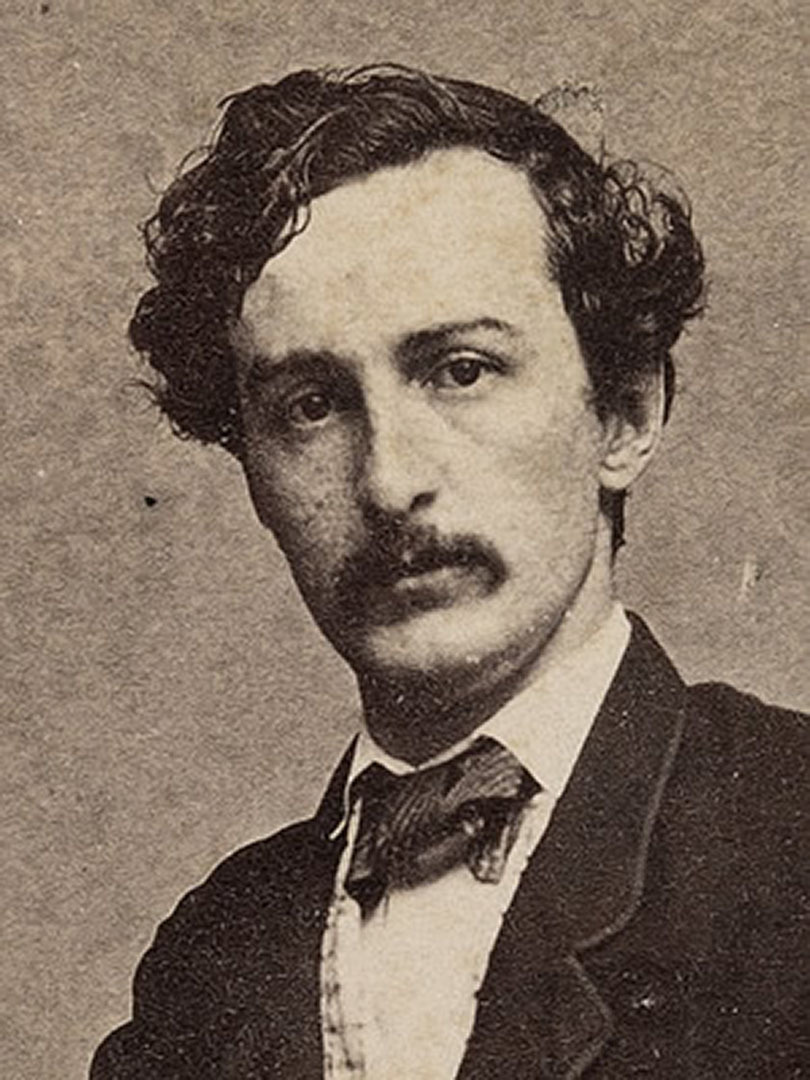John Wilkes Booth

1838–65
Maryland
Actor
Arguably the nation's most famous assassin, John Wilkes Booth was an accomplished actor, southern sympathizer, and likely spy before shooting President Lincoln in April 1865. The ninth of 10 children, Booth grew up outside Bel Air, Maryland. After his father's death in 1852, he abandoned his studies and became an actor. By 1860, he was in demand throughout the East, known for his high-energy performances and dark good looks. He later said that, of all Shakespeare's characters, his favorite role was Brutus: the slayer of a tyrant.
Booth was a Confederate sympathizer during the war. Fiercely opposed to abolition, he attended the hanging of John Brown. He was outspoken in his hatred of Abraham Lincoln, whose actions he saw as unconstitutional. By the fall of 1864, Booth had begun plotting to kidnap the president and hold him in exchange for the release of Confederate prisoners.
After Lincoln's reelection in 1864 on a platform advocating emancipation, Booth became increasingly unstable. He called Lincoln "a tool of the North" and his election a plot to "make himself a king." In April 1865, upon hearing of Lee's surrender, Booth abandoned his plot to kidnap Lincoln. His new goal was assassination.
On the morning of April 14, 1865, Booth learned that the president would attend a play at Ford's Theatre that evening. During the play's third act, Booth entered the presidential box and shot Lincoln through the back of the head. He jumped to the stage, shouting, "sic semper tyrannis!" (Latin for "Thus always to tyrants," attributed to Brutus at Caesar's assassination).
Less than two weeks later, federal agents surrounded a barn in Port Royal, Virginia where Booth and co-conspirator David Herald were hiding. Herald gave himself up but Booth refused and the barn was set afire. Booth suffered a gunshot wound to the neck. In his last moments, he whispered, "Tell my mother I died for my country." Emptying the dead man's pockets, the agents found a diary. "Our country owed all her troubles to [Lincoln]," Booth had written, "and God simply made me the instrument of his punishment."
Back To Biographies